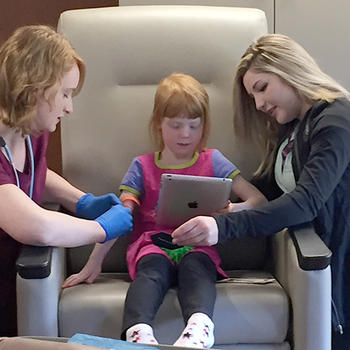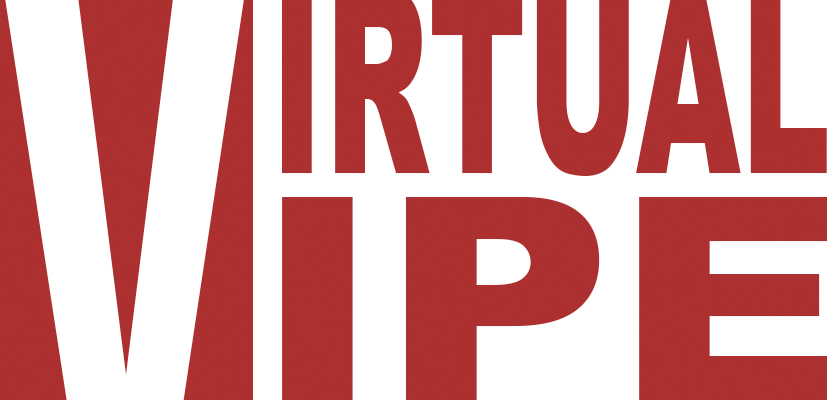 About the Profession
About the Profession
Speech-language pathology (SLP) is the study and treatment of human communication and its disorders. The general objective for each speech-language pathologist, no matter the place of employment, is to “optimize individuals’ ability to communicate and swallow, thereby improving quality of life” (American Speech-Language-Hearing Association (ASHA), 2015, p. 7). Speech-language pathologists work with the full range of human communication and cognition to evaluate, diagnose, and treat speech, language, and swallowing disorders in individuals of all ages, across the life span.
What Does an SLP Do?
A speech-language pathologist (SLP) provides a wide range of services, mainly on an individual basis, but also as support for individuals, families, support groups, and providing information for the general public. SLPs are legally permitted to diagnose certain disorders that fall within their scope of practice.
The general role of an SLP includes the diagnosis and treatment of:
-
Speech delays and disorders including articulation, phonology, and motor speech disorders
-
Language delays and disorders, including expression and comprehension in oral and nonverbal contexts
-
Fluency disorders, including stuttering
-
Voice and resonance disorders
-
Swallowing and feeding disorders in adults, children, and infants
-
Cognitive-communicative disorders including social communication skills, reasoning, problem-solving and executive functions
-
Preliteracy and literacy skills including phonological awareness, decoding, reading comprehension, and writing
-
Communication and swallowing disorders related to other issues, for example, hearing impairments; traumatic brain injury; dementia; developmental, intellectual, or genetic disorders; and neurological impairments
Specialties
SLPs work in a variety of clinical and educational settings. These include public and private hospitals, skilled nursing facilities (SNFs), long-term acute care facilities, hospice, and home health care. SLPs may also work as part of the support structure in the education system, working in both public and private schools, colleges, and universities. Some SLPs also work in private practice, offering services to the general public or community health, providing services at prisons and detention centers, or providing expert testimony in applicable court cases. Recently, the field has also experienced tremendous growth working with individuals in the corporate setting or transgender community, addressing communication and voice-related issues.
Those in the acute care hospital setting, however, have slightly different responsibilities than those who work in other practice settings. Speech-language pathologists in acute care evaluate, diagnose, treat, and help prevent oral motor, swallowing, cognitive-linguistic, speech, and language disorders that may result from strokes, head injuries, respiratory issues, cancer, seizures, progressive diseases, or other medical conditions (ASHA, n.d.). More specifically, speech-language pathologists who work in acute care settings:
-
Use physical examination, instrumental technology, and standardized cognitive-communication tests to diagnose and guide treatment
-
Evaluate, diagnose and treat cognitive-communicative impairments, including underlying attention, memory, abstract reasoning, or problem-solving deficits possibly related to a stroke, brain injury, or underlying medical disease process
-
Evaluate, diagnose, and treat language disorders such as aphasia or a motor planning disorder such as apraxia or dysarthria
-
Evaluate and treat individuals with voice quality problems, such as inappropriate pitch or harsh voice possibly related to vocal abuse or cancer
-
Evaluate, diagnose, and treat individuals who have oropharyngeal impairments that place them at risk for food or liquid entering the airway (aspiration) when swallowing, which can lead to respiratory complications
-
Conduct and interpret examinations such as the modified barium swallow and videoendoscopic examinations
-
Recommend alternate nutrition based upon aspiration risk when swallowing, recommend diet-level modification to reduce aspiration risk when swallowing, design an individualized augmentative communication system, or prescribe a speech-generating device for individuals with nonfunctional speech
-
Provide education to patients, family members, and caregivers regarding impairments, disease processes, and compensatory strategies
-
Develop daily home programs unique to each individual’s strengths and weaknesses that facilitate maintenance of swallowing, cognitive-linguistic, speech, or language skills at an optimal level
Program Overview
The entry-level of education needed to practice as an SLP requires a master’s degree. Programs range from two to three years depending on full-time versus part-time enrollment. The master’s program in Communicative Sciences and Disorders consists of dedicated professionals and educators with a common commitment to research and public education and a belief in mentoring new graduates and supportive personnel to become the future leaders in the field. Experiences for learning and practice occur in both the academic setting and in a minimum of three different fieldwork experiences, working with individuals with various communication and/or swallowing disorders or problems across the life span.
The master-level program of study encompasses communication and swallowing disorders and differences, including the appropriate etiologies, characteristics, anatomical/physiological, acoustic, psychological, developmental, and linguistic and cultural correlates in the following areas:
-
articulation;
-
fluency;
-
voice and resonance, including respiration and phonation;
-
receptive and expressive language (phonology, morphology, syntax, semantics, pragmatics, prelinguistic communication and paralinguistic communication) in speaking, listening, reading, writing;
-
hearing, including the impact on speech and language;
-
swallowing (oral, pharyngeal, esophageal, and related functions, including oral function for feeding, orofacial myology);
-
cognitive aspects of communication (attention, memory, sequencing, problem-solving, executive functioning);
-
social aspects of communication (including challenging behavior, ineffective social skills, and lack of communication opportunities); and
-
augmentative and alternative communication modalities.
Practicum Immersions: In addition to core coursework, programs in Communicative Sciences and Disorders require Practicum Immersions. These include supervised introductory clinical practice opportunities that take place in the on-campus clinic and/or in the community. Students also enroll in a corresponding Practicum course, and the combination of the didactic and application opportunities prepare students to demonstrate knowledge and competencies in:
-
critical thinking and decision-making skills while engaged in all aspects of identification, evaluation, diagnosis, planning, implementation, and/or intervention related to various communication and/or swallowing presentations and across the lifespan;
-
scientific methods/evidence-based practice;
-
ethical practice, interprofessional collaborative learning and professional skills;
-
oral and written communication (e.g., reading, writing, listening, speaking); and
-
health and education policy and advocacy.
Fieldwork
In addition to Practicum Immersions, students participate in three terms of 12 full-time weeks of fieldwork experiences as a requirement to sit for the certification exam. In the United States, speech-language pathologists are required to pass a national board exam and meet state licensure and national certification (by the American Speech-Language Hearing Association) requirements after their master’s degree in communication sciences and disorders is conferred. In order to remain licensed and certified, an SLP must also participate in continuing education and complete the required number of professional development units.
